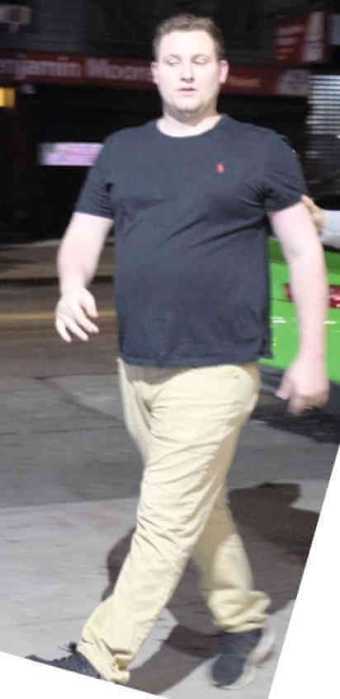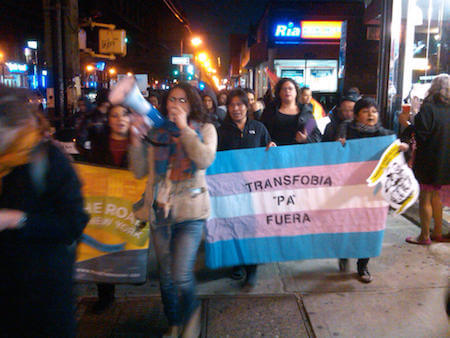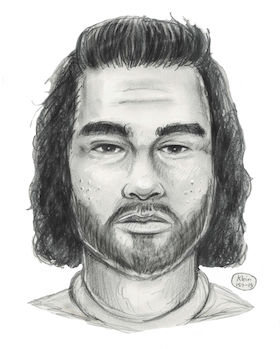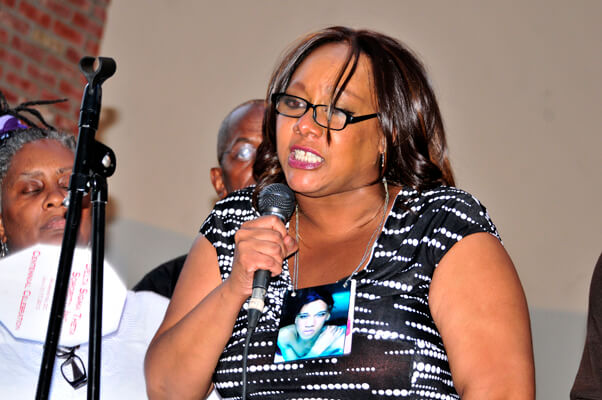BY DUNCAN OSBORNE | Proving the danger of a criminal defendant representing himself at trial, the accused killer of Mark Carson put a witness who was present during Carson’s shooting on the stand and the prosecution used the man’s testimony to introduce a written statement he gave police that implicated the accused killer in Carson’s death.
“As to these two men, you specifically wanted them to stay away from this defendant, correct?” asked Shannon Lucey, the assistant district attorney who is prosecuting Elliot Morales in Carson’s death, during her cross-examination of Joseph Matos, a longtime Morales friend.
“Yes,” Matos answered in Manhattan Supreme Court on March 1.
Morales, 36, is charged with second-degree murder as a hate crime, weapons possession, and menacing in the killing. Allegedly, he shot the 32-year-old gay man in the West Village just after midnight on May 18, 2013. Carson was out with his friend, Danny Robinson, who witnessed the shooting.
Defense witness' prior statement implicates Elliot Morales
Morales, who is representing himself, called Matos, 35, as a witness. Matos is suspected of being an accomplice in the homicide. A. Kirke Bartley, the judge in the case, appointed an attorney to advise him on his Fifth Amendment rights against self-incrimination. Matos, who has known Morales since childhood, repeatedly invoked those rights during his testimony.
Matos, Morales, and Oscar Robles, who testified under subpoena by the prosecution on February 22, were in the West Village that night and they stopped for pizza on Sixth Avenue near Eighth Street.
As the three were walking south on Sixth Avenue, Carson and Robinson were heading north. Morales walked between Carson and Robinson, forcing them apart, and allegedly made an anti-gay comment. Matos confirmed that Morales spoke to Carson and Robinson as he forced them apart.
“I don’t recall what he said, but I know he said something,” Matos said.
An argument began that eventually ended up on West Eighth Street, where Morales allegedly fired a single shot that struck Carson in the head, killing him.
Lucey quoted Matos’ written statement in which he said that he heard Morales say to Carson and Robinson, “You want to die? Come around the corner.” Another quote from Matos’ statement had Morales saying, “I feel like walking around here and getting someone.”
When Matos said he did not recall those comments, Lucey presented him with his written statement that contained the quotes. He conceded that he had written it and signed it. That statement was entered into evidence and the jury can review it.
Matos testified that he repeatedly tried to get Carson and Robinson to leave. Lucey asserted that this was because he knew that Morales was carrying a gun and that he wanted to use it. The implication was that Matos knew the danger that Carson and Robinson faced and he was trying to get them away from Morales, who was living in Matos’ Queens home at the time. Matos invoked his Fifth Amendment rights whenever Lucey asked if he knew Morales was armed.
Matos testified that he did not see either Robinson or Carson holding a weapon. He did say that he was standing between Morales and the two gay men, trying to end the fight when Morales told him to “Move.” Then he heard a gunshot.
“Was it right after you were told to move by the defendant?” Lucey asked.
“I believe so,” Matos said.
Morales appears to be mounting a defense that says, in part, that the shooting resulted from an alcohol-fueled fight in which he felt threatened by the two men. He has repeatedly said the killing was not intentional, a required element for a second-degree murder conviction, and that it was not motivated by anti-gay bias. He has produced some evidence to support this argument.
Robinson said he had two drinks before encountering Morales and Carson had three. While Matos did say that Morales had been drinking, the amount was ambiguous.
“Probably like two bottles, beer,” Matos said when Morales questioned him about how much alcohol he saw him consumed the day Carson was killed.
Morales called a transgender woman to the stand on March 1 who testified that she had a decade-long sexual relationship with him. The woman was allowed to testify with a pseudonym –– Jane Smith –– and from behind a screen so she could not be seen. The prosecution, defense, and the judge offered no explanation for the anonymity when queried by Gay City News.
“I first met him as Eli,” the woman said when questioned by Morales. “It was maybe nine or 10 years ago. I met him over the Internet… When I first met Elliot, I had no surgeries.”
She said that she had never heard Morales express any anti-LGBT views. The woman noted that their relationship was not emotionally intimate when cross examined by Lucey.
“We were never in a relationship,” she said. “It was a sexual relationship. It was sexual, not personal… I never hung out or saw Elliot outside my apartment.”
Lucey also noted that the woman was currently on probation for grand larceny, with six prior arrests on that same charge as well as an arrest for assault and another for criminal possession of a weapon and other charges that earned her a three-to-seven year sentence in state prison.
The trial will continue on March 2.



































